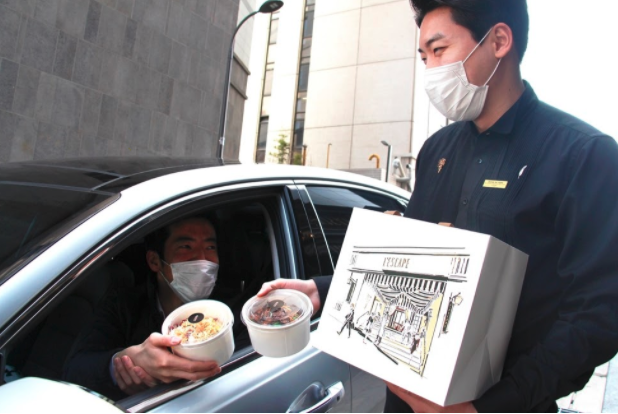COVID-19 AND THE IMPACTS ON THE GLOBAL HOSPITALITY + LEISURE INDUSTRY
As the world starts the shift into its new “normal”, businesses across our celebrated and eclectic hospitality industry move to take-away only formats, cook-at-home delivery meals, with some restaurants, cafe and accommodation inevitably closing until the global state of pandemic subsides.
As a nation we have experienced the impacts of SARS, 9/11, and recessions, but nothing in recent history has been as widespread, deadly and disastrous. The enormity of Coronavirus is simply earth shattering.
The success of our industry widely depends on trends regarding local and interstate travel, and the coming together of community. COVID-19 has not only hindered people joining in arms, it has slowed down, and in instances decimated supply chains, completely turning the travel ecosystem on its head. Throughout these times, the interconnectivity of all industries is further emphasised.
Although it can be difficult to predict just what the landscape will be when this temporary phase passes, the pandemic has only shown how patron care is alway first and foremost for our industry at large. From closing doors to protecting the health and safety of staff and guests, comes new ways of caring for the community.
Around the globe, here are some of the ways our vibrant hospitality and leisure businesses have evolved throughout these times to ensure a COVID-safe environment, proving that no matter what, the show must go on.
Boulder, Colorado, U.S.A
Delivery truck, Mabel, providing organic groceries to the community of Boulder, COLORADO
Photo: Douglas Brown via bon appétit
Erik and Jill Stokan of Colorado based farm-to-table restaurant, Black Cat, made the shift from in-house dining to farm stand sales towards the start of March when stay-at-home orders were firstly introduced. Seemingly in an instant sales started to plummet, and dedicated staff that were with the business for over 16 years were suddenly out of work; this an all too familiar situation across the wider hospitality industry.
From lemons to lemonade, the group began selling fresh produce such as bread, lamb tagine, and pasta sauces directly from their farm. Furthermore, retrofitting an old van (pictured), they began delivering produce and hard to find resources such as toilet paper to the wider community. A change that has seen employees come back to work, and a service that has taken the stress and strain off the community in need when supermarket shelves are bare.
Melbourne, Victoria, Australia
Attica’s signature Vegemite scrolls
Photo: via Attica
Attica Restaurant is the brainchild of chef Ben Shewry, known for embodying innovation and creativity on a plate, unparalleled to their fine dining competitors across the country. Pivoting from in-house dining to take-away, Shewry launched the Attica Bake House, offering a new take on the classic, ‘Vegemite scrolls’, with a short but sharp menu available.
“We need to pool our resources into one sustainable business model that will help us get through the next few months.” - (Shewry, Australian Financial Review)
Through this quick thinking, Shewry has yet to stand down any of the staff in his team. The team are busily preparing deliveries and taking on roles as courier drivers.
Seoul, Korea
Drive through service offered by L'Escape Hotel allowing customers to pick-up meals without leaving their car
Photo: L'Escape Hotel via The Korea Times
Food and beverage curator, Matty Kim, for hotel group Shinsegae Chosun in the heart of Seoul, Korea remembers the shift in community dynamic from the onset of the virus, suddenly seeing more patrons starting to wear masks. Their hotel group has gone from providing sit-down buffet style breakfasts to room service only, with some hotel restaurants making the switch to take-away. They even set up drive-way service in a click-and-collect fashion, where guests can view the menu online and place an order. When the food is ready, servers wearing masks deliver orders to the patron’s car. From a personalised, face-to-face format, they have shifted to ensure guest’s safety is paramount, with the help of technology enhancing the customer experience.
Mexico City, Mexico
With their supply chain immensely impacted throughout quarantine restrictions, chef Jorge Vallejo, and the Quintonil team organised fresh weekly produce boxes to the community in Mexico City, in an initiative called #MeteCanasta to support the producers and suppliers who now face uncertain futures. Deliveries would go out on a Friday, with chef Vallejo taking to Instagram the next day to instruct customers how to make great tasting food with the produce provided.
Find out more below about the evolving COVID-19 conditions across the industry:



